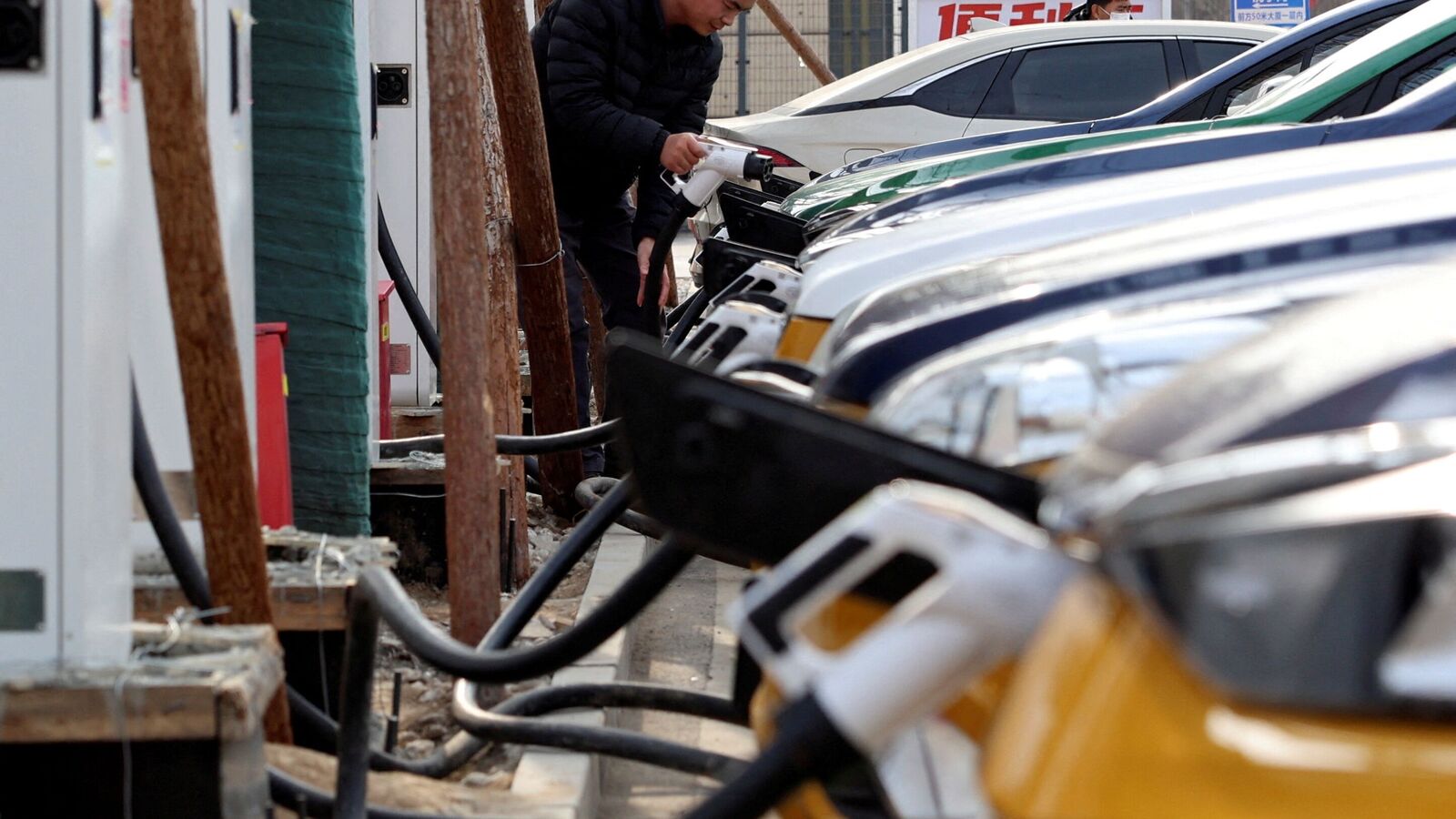Chinese carmakers demand severe measures, such as a 25% tax on European cars, after EU plans to increase tariffs on China-made EVs by up to 48 per cen
…
Chinese carmakers have urged Beijing to adopt the “most severe measures”, including a tax of 25 per cent on European Union-made cars with large engines, in response to Brussels’ tariffs on electric vehicles made in China, a report said Wednesday.
The companies made the demand in a closed-door meeting with Beijing’s Ministry of Commerce attended by four Chinese and six European auto manufacturers, as well as industry and research bodies, on Tuesday, according to an article published by a social media account affiliated with state broadcaster CCTV.
Also Read : China targets Europe’s farmers, not its automakers, in response to EU tariffs
The EU announced last week it plans to raise tariffs on China-made EVs by up to 48 per cent following a probe, with state-owned automaker SAIC Motor Corp. hit the hardest. A Chinese trade representative accused the EU at Tuesday’s meeting of using the investigation as a pretext to steal business secrets from Chinese EV makers.
Level playing field
The idea of Beijing retaliating by raising the temporary import tax on vehicles with engines larger than 2.5 liters was first raised in an article in the state-run Global Times in May in the lead-up to the EU probe.
Also Read : Here’s why Chinese carmakers want China to rage tariff war on Euopean cars
The European Commission said its goal was to restore a level-playing field. Almost one-fifth of EVs sold in the EU in 2023 were made in China with the share forecast to rise to 25 per cent this year, according to lobby group Transport & Environment.
However, for some EV makers like BYD Co., there may be room to absorb the EU tariffs. BYD was hit with additional duties of 17.4 per cent, the lowest rate out of the three Chinese manufacturers investigated by the commission, and lower than the industry average of 21 per cent.
First Published Date: 20 Jun 2024, 06:37 AM IST

